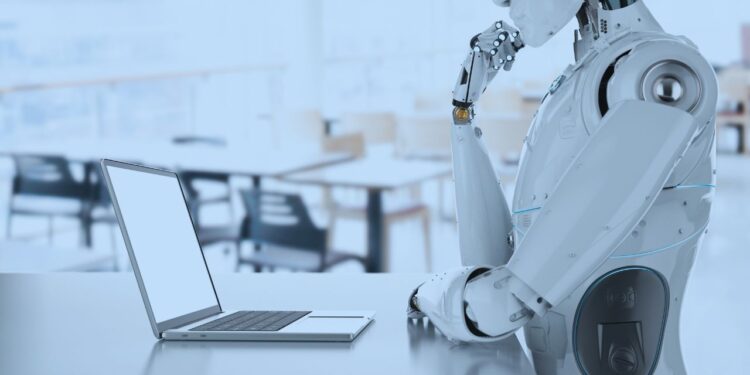U.K.’s Prime Minister Rishi Sunak and tech mogul Elon Musk engaged in insightful dialogue following the U.K.’s AI Safety Summit. The two discussed the profound impacts of artificial intelligence on the future of work.
In a bold statement Musk, known for his cautionary stance on AI, suggested that technology could eventually make human labor obsolete — envisioning a future where jobs are optional and AI systems could outperform the smartest humans in every task.
This conversation, as reported by Time, sheds light on growing concerns for the workforce: the potential automation of human labor in the face of advancing AI technologies.
Musk’s prediction aligns with a growing body of thought that AI will not only automate routine tasks but could also undertake complex problem-solving, making even intellectually demanding roles susceptible to automation in the future.
Sunak, however, expressed a more nuanced view, emphasizing the intrinsic value of work beyond economic necessity. He underscored the importance of work for personal satisfaction and purpose, suggesting that the role of work in human life extends beyond the mere act of labor.
In other words: meaningful work gives people greater purpose in life.
The dialogue between these two influential figures is a typical conversation that is likely to develop and expand in the coming years. As AI technology advances, governments and industries must grapple with the dual challenge of harnessing the technology’s potential while mitigating its disruptive impact on the job market. AI technology will require a reimagining of work, education, and social guardrails to protect society and the global economy.
Musk’s call for government intervention to manage AI risks suggests a recognition that the path forward is not solely in the hands of technocrats, but requires a collaborative effort involving policymakers, educators, and the broader public. Sunak’s efforts to position the U.K. as a leader in AI regulation shows a proactive approach to shaping this future — balancing innovation with safety and ethical considerations.



 Dr. Gleb Tsipursky – The Office Whisperer
Dr. Gleb Tsipursky – The Office Whisperer Nirit Cohen – WorkFutures
Nirit Cohen – WorkFutures Angela Howard – Culture Expert
Angela Howard – Culture Expert Drew Jones – Design & Innovation
Drew Jones – Design & Innovation Jonathan Price – CRE & Flex Expert
Jonathan Price – CRE & Flex Expert












